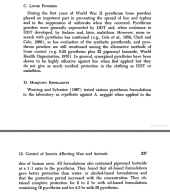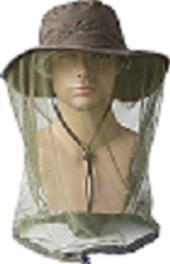
 3
3




 2
2




When you reach your lowest point, you are open to the greatest change.
-Avatar Aang
 3
3














 1
1






















Invasive plants are Earth's way of insisting we notice her medicines. Stephen Herrod Buhner
Everyone learns what works by learning what doesn't work. Stephen Herrod Buhner




James Landreth wrote:I don't think it will work, but it's worth a shot. Sorry to shoot down the idea.
You mentioned you're familiar with anti perspirants and such. Are you familiar with the homemade stuff? I've made deodorant out of coconut oil, cornstarch, and baking soda before. You can add whatever essential oils you want and keep the mixture in a jar. You could add mint or other oils to repel mosquitoes








'Every time I learn something new, it pushes some old stuff out of my brain.'




F Agricola wrote:Hello Dale,
Also, citrus grow well in the tropics, so I don't know why they're not available in the Philippines?














 1
1




Trees are our friends
 1
1





























Dale Hodgins wrote:
Almost all citrus need a cold period. So they are a subtropical plant. There is only one place in the Philippines known for the production of oranges and it's at high elevation. I didn't see one citrus tree during two months there and they have tried to grow everything known to man. There are ongoing breeding efforts for citrus and for things like potatoes and apples which also do poorly.
'Every time I learn something new, it pushes some old stuff out of my brain.'
 1
1




Creating edible biodiversity and embracing everlasting abundance.
 2
2




-Nathanael





 1
1




Dale Hodgins wrote:
There's no point in me washing in those flowery soaps, because I tend to rinse off quite well. Then I towel dry, so any residual deodorizer is pretty much lost.
Works at a residential alternative high school in the Himalayas SECMOL.org . "Back home" is Cape Cod, E Coast USA.









AN OVERVIEW OF CLIMATIC EFFECTS ON CITRUS FLOWERING
AND FRUIT QUALITY IN VARIOUS PARTS OF THE WORLD
...The low tropics ...Generally, citrus production in this
area is low and fruit are used primarily for local consumption resulting from the adverse effects of
hot, humid climates on fruit quality of most important citrus cultivars. Disease, pest and weed
pressures are especially severe throughout most of these regions....
... fruit quality for oranges and mandarins is poor ... but grapefruit and limes ... produce fruit with high internal quality. For example, even' Star
Ruby' grapefruit develops a deep red color at sea level in this region. External fruit quality (peel
blemishes) is a problem for fruit from the low tropics....
Works at a residential alternative high school in the Himalayas SECMOL.org . "Back home" is Cape Cod, E Coast USA.

| I agree. Here's the link: http://stoves2.com |


